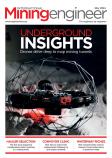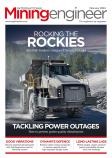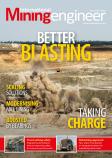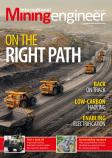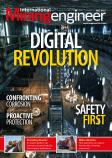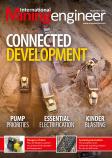David Marshall reveals how a welding specialist was able to succesfully undertake a complex repair project during the Covid-19 pandemic
The past few months have been challenging for most businesses due to the ongoing Covid-19 pandemic. Welding Alloys Group has introduced new processes and procedures to enable it to undertake projects on site. These are now in place and will be used going forward.
In June, the company undertook a project to repair a vertical roller mill (VRM) at Hanson Cement’s site in Purfleet, Essex. The work involved the repair of a Loesche 46 2+2S VRM grinding table and rollers, which had worn after processing over 3,500 tonnes of granulated blast furnace slag.
Welding Alloys has supported Hanson Cement at Purfleet since the initial commissioning of its VRM in 2001. Both companies were aware of the challenges they would need to overcome to complete the project within the limited shutdown period while complying with the Covid-19 measures. A shift pattern was implemented, which reduced the time needed to complete the hardfacing operation; areas were marked out on site so social distancing could be adhered to and a canteen area was provided by Hanson Cement to limit the need for shared areas.
Having worked on this site for a number of years both firms were aware of the urgency to carry out the refurbishment of the VRM table and rollers as productivity reduces considerably once the rolls and table gap goes out of tolerance. Following on from the initial ‘wear audit’ assessment, the grinding components were taken back to the profile template using the WA Integra mill wire products. These products have been specifically designed for hardfacing and re-profiling of grinding components in vertical grinding mills and are used with impressive results on rollers and tables of all types: improving the service life, grinding efficiency and energy consumption.
Wear reduction is as key part of mill maintenance. Hardfacing has been shown to increase wear life when applied to all traditional grinding components. The hardfacing was carried out using the automated WA mill kits – the ideal choice for in situ mill repairs. Using a separate mill kit for each mill component allowed for a shorter repair time, as both rollers and the table can be repaired at the same time, and after the software has been programmed the kits can run 24/7.
Safety first - Repairing the vertical roller mill in compliance with Covid-19 measures
Welding is monitored by trained Welding Alloys Integra team members, who have all the relevant safety training passports and first aid training. The risk assessments have been adjusted to take into consideration new Covid-19 measures, including: taking body temperature readings at the beginning of each shift; having a hand sanitising station available’ travelling to and from site in separate vehicles; and social distancing. This takes a lot of planning due to the confined spaces in mills.
The team was able to complete the work on site within three days, including the installation of the equipment in the VRM and removal of the equipment at the end of the refurbishment. The two rollers and the mill table were built back to profile, with the work completed ahead of schedule.
Welding Alloys group is able to supply new hardfaced cement mill rollers and tables, adding extra wear lifetime to the components before going into service. This increases the production time and limits the plant downtime even further. It can also supply standard rollers and table castings.
Using the group’s proven Mill and MillCarb Cored Wire products can increase the lifetime of all service parts by at least double – if not more, in some cases.
David Marshall is with Welding Alloys
















